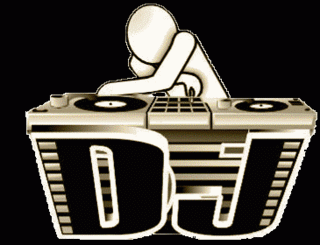Break Anxiety and Addiction By Examining Your Patterns Watch the newest video from Big Think: https://bigth.ink/NewVideo Join Big Think Edge for exclusive videos: https://bigth.ink/Edge ---------------------------------------------------------------------------------- In our lives, we all spend a heck of a lot of time with one special person – ourselves. We know what we like, we know what we hate, what we’re good at, where we fall short. The world around you may be a complex mystery, but at least you know yourself, right? Wrong. Harvard Professor of Chinese History Michael Puett is riding in on the Eastern Philosophy steam train to shatter everything you think you know about your "true" self. Firstly, he says, realize that you may think you are a certain way – you have a short temper, but you’re good at thinking on your feet, always have been and always will be. You have probably based your career, your relationships, your lifestyle choices on that information. But what if that is not your true self, but just a series of patterns you’ve fallen into? It’s not essentially you, it’s just who you’ve become. When you start to examine why you are one way or another, you will find at some point it was a reaction to the world around you, which then got solidified and now that’s "you", but actually it’s a pattern, and patterns can be altered. He recommends that for your shortcomings, you should look deeply into why you have adopted that pattern, where did it start, and then break it at its base. For your triumphs, identify why you’re good at a certain thing or in a certain situation, and try to expand that pattern into other areas of your life. Puett goes on to discuss this idea in the context of addiction – the most extreme example of a pattern people fall into. All addiction starts with a moment, a sliding doors comment, event, or an anxiety that comes to you and then compounds over time, forcing you to act and seek an outlet for that feeling. But the reason some addiction treatments can be ineffective in the long run is that you’re resisting the outlet, but you’re not breaking the underlying pattern of your addiction. "You’re trying to break it at too late a stage," says Puett. "Like going through the day with all the anxieties, [then saying] ‘Now I’ll try to not get that drink’. Well, good, but you’ve got to start earlier. You’ve got to begin with why those little anxieties begin to gnaw at you at 3am, when you wake up. Why when the alarm goes off they gnaw at you all the more. That’s where you begin to make the little breaks. And over time that’s how you break these larger patterns." Puett is author of The Ambivalence of Creation: Debates Concerning Innovation and Artifice in Early China. ---------------------------------------------------------------------------------- MICHAEL PUETT: Michael Puett is the Walter C. Klein Professor of Chinese History in the Department of East Asian Languages and Civilizations and Chair of the Committee on the Study of Religion at Harvard University. He is the author of The Ambivalence of Creation: Debates Concerning Innovation and Artifice in Early China and To Become a God: Cosmology, Sacrifice, and Self-Divinization in Early China, as well as the coauthor of Ritual and its Consequences: An Essay on the Limits of Sincerity. In 2013, he was awarded a Harvard College Professorship for excellence in undergraduate teaching. ---------------------------------------------------------------------------------- TRANSCRIPT: Michael Puett: If we often ask ourselves okay, who am I? What’s my true self? What am I gifted at? What am I bad at? Oftentimes we’ll answer that assuming this one authentic self. So I’m just the sort of person who gets angry at little things but I’m also the sort of person who’s very good at tackling big problems. So that’s me. And then we’ll think through okay, what’s a good career for me? What are good relationships for me based on who I am? Now again suppose that’s all wrong. Suppose those are all simply patterns we’ve fallen into. So it may be empirically right to say right now on someone who gets angry at little things and good at thinking big. But that’s just because I’ve fallen into these patterns. That doesn’t mean that’s essentially me, that’s just who I’ve become. Now if that’s right the question you should be posing to yourself is not who am I. The question you should pose to yourself is what are these patterns I’m falling into? Why do I get angry at these little things all the time? Why do I seem to be what I think is at my best when I’m tackling big problems? And you begin to look at those little things you do on a daily basis that are sort of defining how we’re responding to the world. Read the full transcript at https://bigthink.com/videos/michael-p...
top of page
bottom of page








